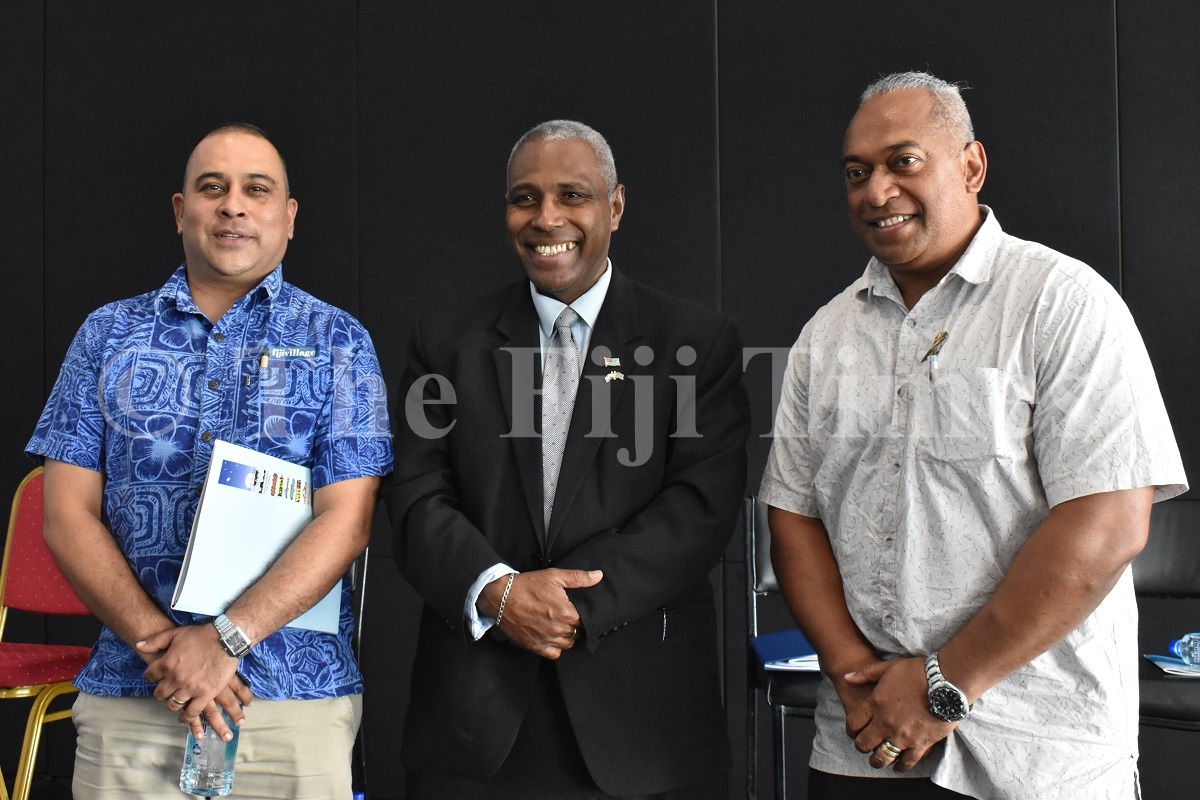Attorney-General Siromi Turaga publicly apologised to journalists yesterday for the harassment and abuse they endured during the Bainimarama government’s reign. He was one of the panelists invited to speak following the launch of a report titled Fiji Media Industry Development Act 2010: An Analysis organised by Dialogue Fiji.
Mr Turaga and other invited guests heard for the first time a harrowing recount of abuse suffered by senior journalists at The Fiji Times during editor-in-chief Fred Wesley’s address.
Wesley, who was one of the four people implicated in sedition charges in 2018, spoke of his experience being charged and having the threat of going to prison hanging over him until he and his team were ultimately acquitted by the High Court in Suva.
“A walk that usually took me about 10 minutes to get from my office to the High Court on that particular day took almost an hour,” he said.
Wesley also shared how the feedback received from people from all walks of life had inspired and motivated him to stay and carry out the duty the newspaper had to the public.
He also shared an account of the newspaper’s chief of staff Margaret Wise and deputy chief of staff Felix Chaudhary, who both were intimidated and harassed by the military.
Wise was threatened by soldiers at The Fiji Times Lautoka office in 2010, where she was the bureau chief at the time. The soldiers in question were after her mobile phone, which she refused to hand over.
Wesley said following discussions with their legal counsel, she was ultimately advised to hand over her phone. In fear of further repercussions, Wesley said Wise and her family had to be relocated for their safety.
In the case of Chaudhary, he was taken in for questioning by military personnel while he was covering an event at Tanoa Waterfront Hotel in 2011.
Then bureau chief Wise tried to intervene, however, she was unsuccessful as he was taken to Nadi. In Chaudhary’s words, he was genuinely “scared for his life” as the military officers kept taunting him about what was going to happen to him.
Ultimately, when he arrived at an abandoned Government building office in Nadi, he saw the Fiji Trades Union Congress (FTUC) national secretary Felix Anthony also in the building.
Chaudhary was then quizzed about a series of front page stories he had written and physically abused before being warned to refrain from writing such stories and to be “like other good journalists”.
At another point in time, Chaudhary was also locked up in a police cell after “orders were given from above”. Upon hearing the stories, Mr Turaga also said both he and the Prime Minister Sitiveni Rabuka also had stories to tell.
“In my capacity as Attorney-General, I publicly apologise for the actions taken by the previous administrators in terms of media freedom.
A lot of people were victimised,” he said. Mr Turaga also said he truly sympathised with what the journalists had gone through. There were also suggestions from those at the report launch for journalists to document such experiences so they may never be erased from history.

